‘It’s a weird feeling’: The touching stories of Australia coronavirus heroes
They are saving lives and helping millions get essentials they need in self-isolation. But our coronavirus heroes also have fears and anxiety as they face the possibility of being infected.
National
Don't miss out on the headlines from National. Followed categories will be added to My News.
- Medicare rebates for telehealth: How to book a virtual consult
- Health funds delay controversial premium rises
They’re the frontline heroes in the COVID-19 battle – a group of people whose jobs have thrust them to the forefront of the biggest challenge in a generation.
It’s a group of likely and unlikely heroes who, right now, are holding the country together.
News Corp journalist Steve Pennells found a few of them and here are their stories.
ASSOCIATE PROFESSOR GAIL MATTHEWS, HEAD OF INFECTIOUS DISEASES, ST VINCENT’S HOSPITAL, SYDNEY
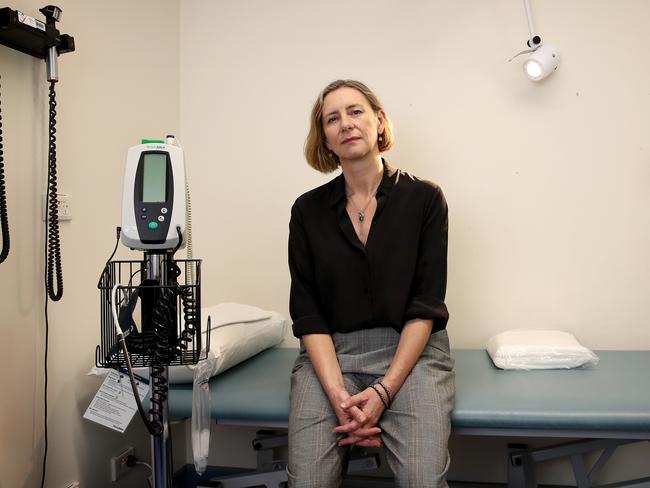
A month ago our team was preparing to celebrate mardi gras and the role our hospital played in a swift, compassionate and brave response to the HIV epidemic.
Today we find ourselves reeling as the tide that is preparing for COVID-19 to hit us and our community, picks us up and spins us around.
Medicine is a challenging complex beast and hospitals function as vast machines, each component working separately but linked together.
Suddenly everything changes and it is a new world.
Every aspect of how the hospital now responds needs to be rethought and reimagined. Question after question after question is directed my way. What happens if we do this? How is this going to work? Is it safe to do this?
The spectre of infection creeps into everyone’s mind and is on everyone’s lips.
Information comes from all angles constantly – it becomes impossible to keep up with the mass of emails and calls and I am bombarded with protocols, advice, thoughts, statistics.
Yet amid all the chaos things start to come together and lessons are learned.
We synthesise the information and put it in place – the hospital starts to unify.
I look around and feel immense respect for the enormous dedication of all my co-workers.
I empathise for the very real anxiety they feel.
I try to keep a calm head and a rational voice.
I look for the evidence and explore options when it is not there.
This is my job.
We are deeply ingrained to fear overwhelming new epidemics of infection but I see a new world being built around me that is deeply committed and prepared to look after our community.
This is what we do, this is what we trained for.
JANELLE TAYLOR, NURSE UNIT MANAGER AT THE PRINCE CHARLES HOSPITAL, BRISBANE
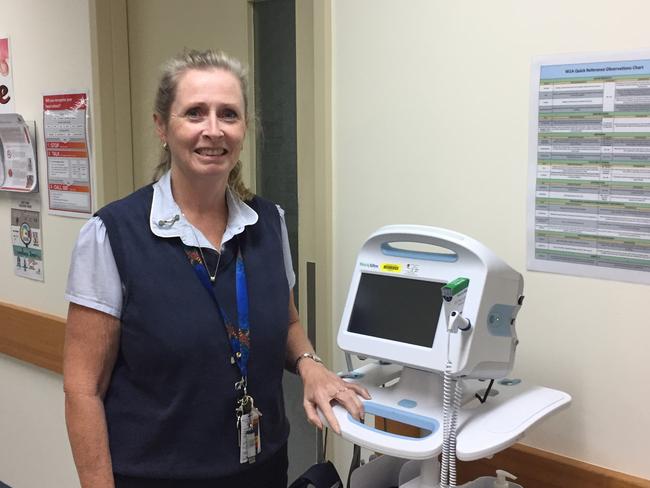
It’s fair to say that we have been feeling busier than usual, working longer shifts as needed and juggling the changing nature of COVID-19.
There is no doubt these are uncommon times and frontline staff across our hospitals, including all my nursing and midwifery colleagues are experiencing elevated workloads and associated levels of stress and anxiety.
It’s a good thing that nurses and midwives are natural born problem solvers, it’s what we do. We have a strong desire to keep the community safe.
But to do this effectively, we need the support of the system and the community.
Today and every day I am focused on being there for my team of hardworking nurses and our patients.
I want to ensure we keep our heads above water and offer support to each other in these demanding times for our workforce.
As messaging and procedures are always changing, guided by advice from experts across our health service and around the country, we adapt along with it and talk clearly to one another about issues like Personal Protective Equipment (PPE).
While Queensland Health have PPE stocks, and access to the national stockpile, it is imperative we use this valuable equipment carefully, because COVID-19 will be a marathon, not a sprint. The stocks are there, but we continue to adapt as to how we use this valuable resource.
Right now, we are treating not only COVID-19 related patients, but expectant mothers, victims of motor vehicle incidents, cancer patients and many others – all with a heightened sense of fear around their condition and COVID-19 at this time.
We must also work to help keep their friends and families calm and protected.
I ask the community and the media to help us, help you.
Please practice social distancing and rigorous hand washing, stay at home if you are unwell, don’t spread rumours that could cause fear or unrest and please perform acts of kindness in your community.
These things will ripple out and help Australia too.
Our system is always busy – but it’s about to get busier.
I ask that people respect the work of frontline staff at this time, offering words of support. Nurses and midwives are there for you when you are most vulnerable.
We ask you please support us during this busy time. Together we will get through this.
TRISH GILBERT, SCHOOLTEACHER, ADELAIDE
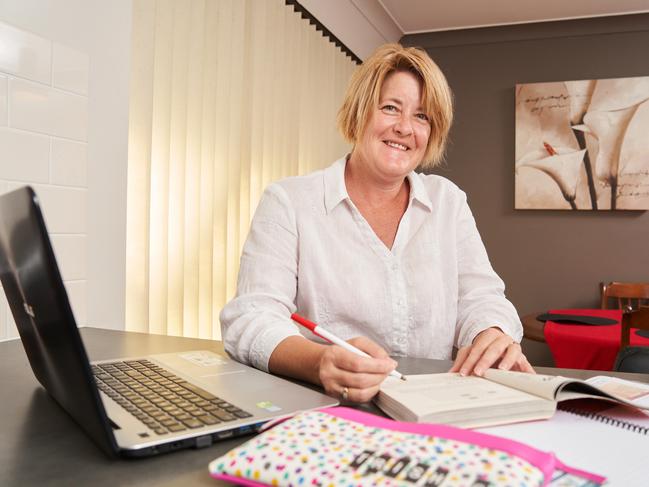
COVID-19 puts fear into us all, but even more so to your children.
Walking into a room full of big eyes and little faces, we do our best to alleviate their fears, answer their questions and then teach them the world is still a big place that soon we will be able to explore again for real.
We don’t have any answers for them or their parents because we are trying to focus and continue to educate little people into world changers; but we too, are worrying about the ones we have left at home, our children and our ageing parents!
Will we be carrying this dreadful virus and will we take it home?
Teachers are supposed to be the purveyors of knowledge, but in my community the only answer I have at the moment is I don’t know (because no one really knows) and we will see what happens.
We put on our brave faces and talk about numbers and vocabulary and teach the curriculum. Our classes are shrinking as the families make the decision to keep their children home.
As the parents look to us for direction and support as their fear grows, we begin our other role – counsellor.
And we will do it all again tomorrow because our kids need us and we are teachers.
MORE NEWS:
MasterChef stars’ simple and cheap self-isolation meals
R.M Williams joins long list of Aussie stores forced to shut
China’s cover-up: How it hid killer coronavirus
Who Australia’s coronavirus spreaders really are
DANIELLE AUSTIN, MEDICAL INCIDENT RESPONSE & DISASTER MANAGER, SYDNEY
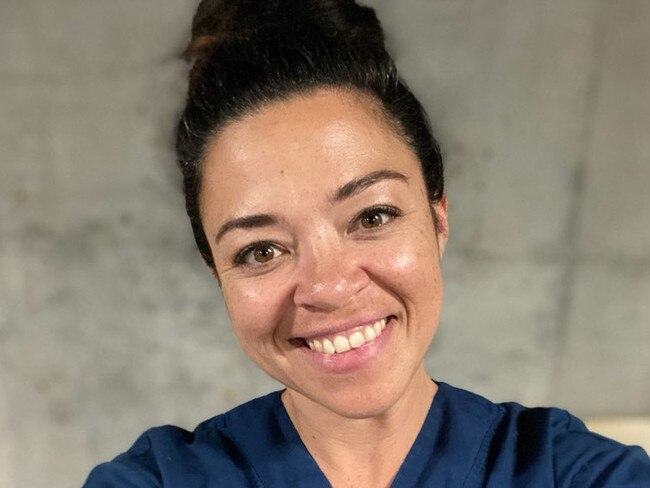
It’s been busy.
Although busy is an understatement for what we have been doing in preparation for the peak. And yet the “busy” of now will pale into comparison of the work still ahead of us.
I am one person in a massive team.
None of this is possible without the collaboration and dedication of each and every one of our staff.
Our cleaners, our security staff, all of our admin staff, the staff in the cafe, our laboratory techs, the warehouse staff … the list goes on and on.
Most of the public adulation is for the doctors and nurses.
Don’t get me wrong, they deserve it.
But it is so important for people to recognise that we can’t do our clinical roles without the support of every single one of them.
Over the last week I have increasingly removed myself from the media cycle and social media platforms.
In order to find some balance in my life I can’t be immersed in COVID-19 during all of my waking hours.
Like most of my colleagues, my dreams are almost always about work.
I get home and I try not to discuss my day but it is impossible.
I check in with my kids to make sure they are okay and while they always say “yes” my eldest, aged 7, did ask me if I would die of coronavirus when I got home the other night.
It was hard. My husband is a frontline HCW as well and we know that it is within the realm of possibility.
In order to relieve the burden on our local school we are sending the kids to my family in the country (a luxury countless others do not have and for which I am forever grateful) and I hope that without the constant talk of “coronavirus” their anxieties might ease.
Even though this all sounds bleak I am actually really optimistic.
I know how much preparation has been done within our organisation.
I know how many people are working so hard to make sure our health system is ready.
GEORDIE WELLINGTON, 26, RETAIL ASSISTANT, ELWOOD VILLAGE FOODWORKS, MELBOURNE
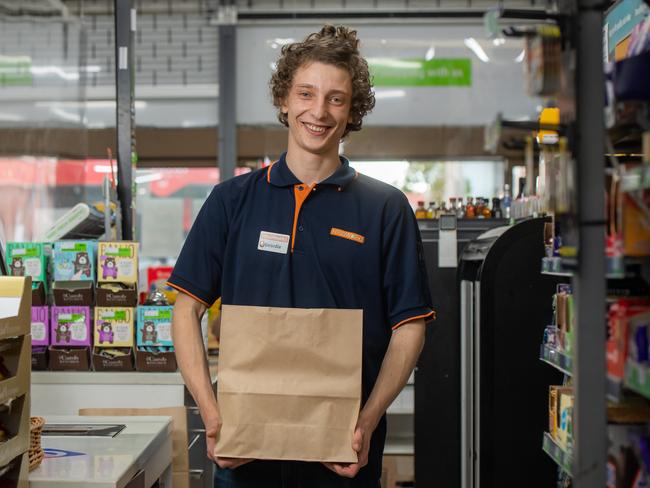
It’s a case of all hands on deck at the moment, we have had to work more hours to be able to cope with demand.
I normally work about 20 to 30 hours a week but now I’m working about 40 hours a week because we need everyone helping.
Witheverything hitting at once you do get the occasional frantic customer but we’ve had a lot of support.
We have a lot of regular customers so we have people saying how much they appreciate us at the moment and they say, “thanks for doing what you’re doing”.
Some people are understanding if we don’t have the stock but some people aren’t, they might think we are being lazy and we are not doing a good enough job.
There’s just not enough people getting everything on the truck delivering it over and having the manpower to do it all.
I was joking with a friend earlier that we are going to get medals of honour because the amount of people who are saying we are on frontlines and that we are really risking ourselves is unbelievable.
Before we were just providing a convenience but now we are providing a service to people.
I’ve been working here for eight years, I do a little bit of everything, I fill shelves, serve customers on the checkouts and do cleaning too.
HAYDEN SLOGGETT, SUPERMARKET WORKER, WOOLWORTHS SYDNEY
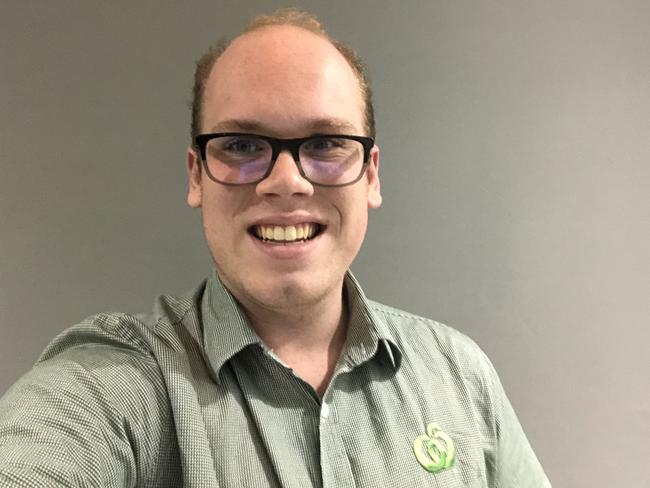
It’s weird feeling being considered an essential worker in the time of coronavirus.
But when you see a hundred or more people lined up in front of your store first thing in the morning before the doors open its truly is a sign of our ever-changing times.
I work in a large supermarket in the southern suburbs of Sydney in a busy shopping complex. Normally my day is one of working the check-outs, interacting with customers and getting odd jobs done around the store.
However, since the initial toiler paper shortages began bringing extra crowds and demand to the store, everything has turned on its head.
Working in customer service has gone from being a part-time job that I enjoyed doing to get me through my university studies, to a job that has pretty much consumed most of my time and life for the last few weeks.
First came the panic shopping and stocking up on long life items from a few customers.
Once word got out seemingly overnight it turned into an all out free for all in stocking up as many groceries as you can.
My store went from being busy across a few periods of the day, to non-stop chaos from when we opened our doors to when they were shut.
Online orders were coming in like crazy, with simply not enough time to pick them all, and checkout queues never seemed to stop!
All of the team I work with have worked at a constant one hundred and ten per cent to keep up with the craziness of this new coronavirus panic.
Once the limits on the amount of groceries people could buy came in, it truly reinforced a new way of life that I have never seen.
These new uncertain times have brought changes to the whole community.
And the frontline workers, such as those of us supermarkets have truly seen it all.
Random acts of kindness to other customers and the team in store have brightened my day.
I recall seeing a customer offering some of their groceries they were getting for their family to another elderly couple who were very clearly overwhelmed with the craziness and could not find the groceries they have bought every week for as long as I’ve known them for.
The support and thanks to our team from customers has also brought some joy to us in these crazy times.
But the anger, frustration and uncertainty of the whole situation has brought out the worst in people.
The abuse directed at team members has been awful and being the brunt of your anger because of a queue, or because of there being no toilet paper, or taking away the twenty-four tins of tomatoes is completely wrong.
We also face the ever-present fear of possibly being exposed to the virus working in large crowds and facing hundreds, if not thousands, of customers a day.
Unfortunately, its these situations that make our day as hard, and combine this with the chaos it truly works away at you.
It’s a whole new challenge that we all have to work towards co-operating together.
But apparently, that’s the life of me, the essential worker now.
KAITLIN BEITZ, ING CUSTOMER CARE SPECIALIST, TUGGERAH, NSW CENTRAL COAST
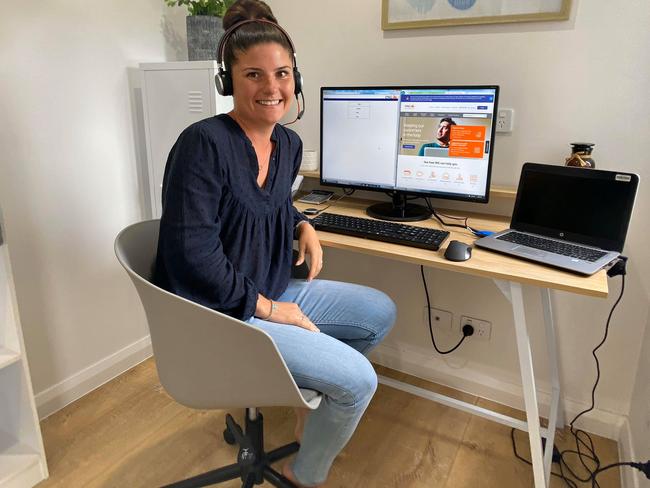
A normal working day at the moment is vastly different from this time last month.
Where previously we’d be fielding calls about a huge range of queries, they now overwhelmingly relate to our customers’ concerns about current or potential financial difficulties in direct response to COVID-19.
We’ve seen a massive surge in the number of calls, there are just so many people impacted.
I feel a real sense of urgency going into each shift to get to as many people as I can, as well as some apprehension not knowing how people are going to treat me, given they’re often in a state of anxiousness.
The majority of callers though are really understanding of the longer wait time to get through and are thankful that we’re doing all we can to help.
It’s quite emotionally challenging hearing of the problems many of our customers are facing, but I have so much empathy for each one.
We’re all in this together so it’s easy to put myself in their shoes, feel genuine concern for each of them and really want to help.
I feel like I’m able to build a rapport with most of them in the short time we’re speaking.
I’m really surprised by how successful the transition to working from home has been and many members of the team have now been able to do it.
I was initially nervous about being distanced from my colleagues, but I feel more supported than ever.
We’ve got a number of group chats going so that we can immediately help each other out to workshop solutions for customers as they arise.
With such a huge demand for our services at the moment, working from home has also made it easier for our team members to jump on the phones at short notice and assist.
TORSTYN COLE, TELSTRA CUSTOMER SERVICE CENTRE MANAGER, MELBOURNE
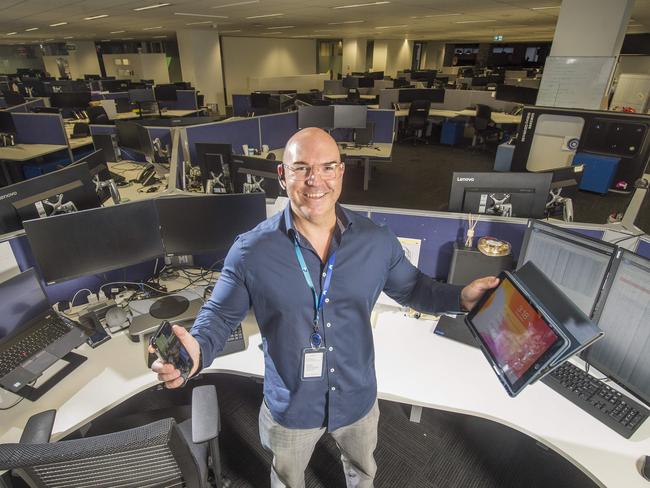
Telstra’s contact centres have been incredibly busy over the past few weeks as you can imagine.
It was only a few weeks ago that this centre was a standard business hours inbound sales operation but literally overnight has transformed itself into a 24/7 full service centre for Australia’s critical needs during this unprecedented time.
We’ve had people calling about all sorts of things such as account inquiries, additional (phone and broadband requirements, work at home set ups, connection faults along with tasks such as call diversions.
We’ve had lots of calls from parents asking for tips and assistance for setting up home schooling for their kids.
We have had to prioritise calls due to the fact our regular staffing levels are down because of COVID-19 restrictions on our local and global workforce.
This hasn’t been easy but thankfully our customers have been very patient with us for the most part and our present workforce has been well and truly up to the task.
We’ve been moving very quickly to put in place alternative solutions for our customers – things like directing them to our website and app for self-help inquiries, and also getting more and more of our contact centre workforce set up to work from home.
We’re very much looking forward to the additional 1,000+ contractor roles starting soon to help us reduce call wait times and allow us to service more customers.
It’s been a challenging time for everyone but Telstra have been fantastic in being on the front foot to assist our team as well as customers across the country.
RACHEL COUTTS, PUBLIC HEALTH OFFICER, DEPARTMENT OF HEALTH AND HUMAN SERVICES, MELBOURNE
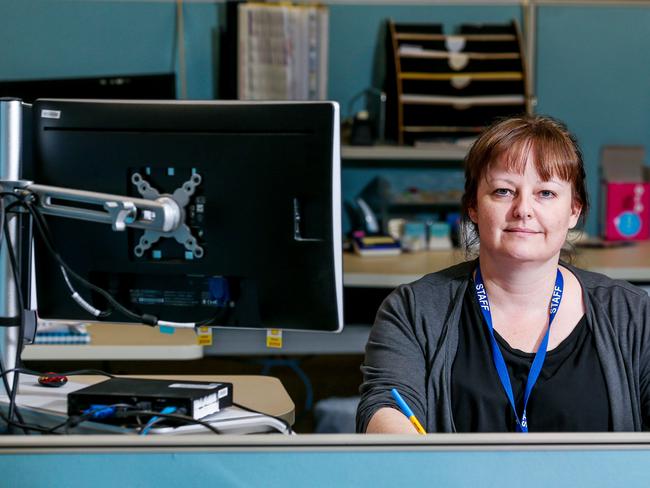
When someone is diagnosed with coronavirus, it is my job to track down who they have come in contact with.
That means, making phone calls, sending off emails and interviewing the patient and anyone they have seen.
We talk to their employer and their friends with the end goal of ensuring that those they have come into contact with can self-isolate quickly and properly.
Some cases are straight forward, others are like a puzzle. The confirmed case might have been in loads of different places – out shopping, to a party or to hospital for reasons unrelated to the virus.
We might need to trace just one person but it can also be dozens, particularly if the confirmed case have come off a flight.
We need to trace passengers who sat in the five rows around the patient, including the two rows in front and two rows behind.
“Contact tracing” is my core business – what I do as part of my day-to-day job – but I’m normally following cases of meningococcal, measles or other infectious diseases.
This coronavirus – and the intensity of it – is very different to anything else we have dealt with.
We usually work 9am-5pm Monday to Friday but we are doing 12-hour days, six days a week.
It is also stressful. My background is as an intensive care nurses. That job is stressful too but when you finish a shift, you hand a patient over to the nurse who is next on duty.
But tracing coronavirus, you know that it is still going to be there tomorrow. It might not be the same person but there is no end in sight to the cases.
We are also up against the clock – if we don’t contact trace people to let them know they are at risk of coronavirus, they might not attribute their runny nose or sore throat to COVID-19.
They could then spread it further.
So, please stop the parties, stop going shopping when you don’t need to. Physical distancing is so important because that is the best – and only way – we are going to slow the spread. Stay at home.
Originally published as ‘It’s a weird feeling’: The touching stories of Australia coronavirus heroes


